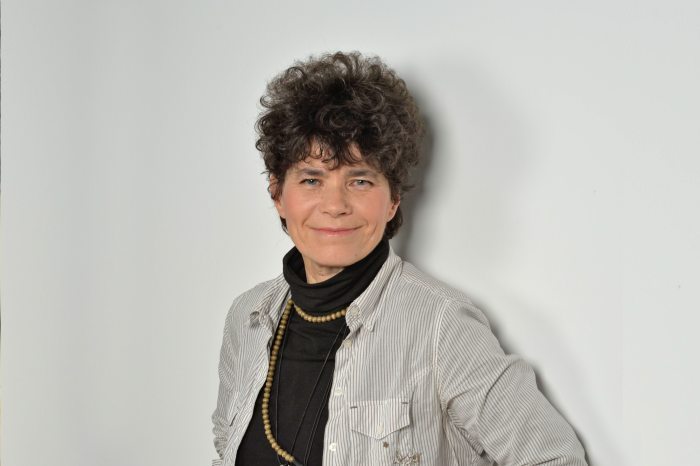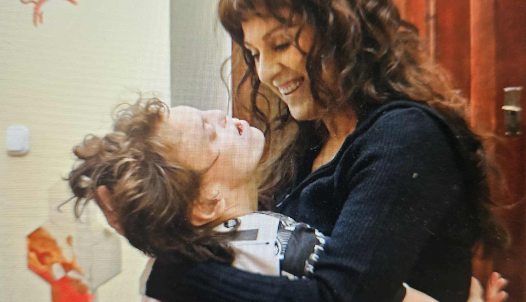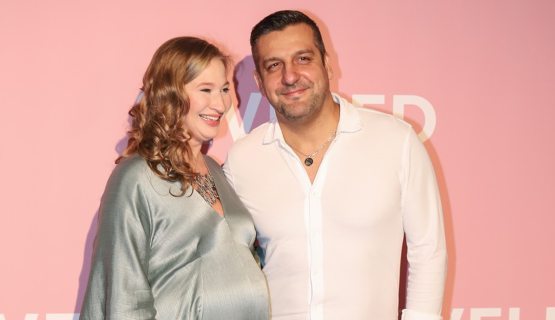Talent is a kind of deviance: both a wonderful and dangerous opportunity
Everyone knows a child who is very bright, who can read at the age of three, and who shows a keen interest in adult subjects such as how the human body works or where water comes from in the tap. Such children are often labelled as odd and are laughed at when they talk about topics with adult seriousness, whereas they may be very talented if we support them in developing their talents. We asked Dr. Éva Gyarmathy, clinical and educational psychologist and lecturer at the Apor Vilmos Catholic College, about the nature of talent and its potential.

Who can be considered a gifted child? What are the criteria for giftedness?
Talent is often identified with ability, but it is more an opportunity, a potential for development. It is an inner driving force that, from an early age, pushes a person to develop, to want to achieve more and to make a difference. A gifted person does not consider whether something can be achieved, but rather the "how". They function differently from their peers, they are autonomous, self-motivated, and go their own way. They can do what others say is impossible because they have the inner drive. But being gifted is not as easy as many people think, because giftedness is a kind of deviance, which involves a lot of struggles for both the child and the parents, and requires a lot of mental effort on their part.
The main task of mentoring is to help this inner drive to unfold and to steer it in the right direction because a talented person will do something anyway, it's just a question of whether for or against society.
Does this mean that the saying that "all children are talented at something" is not true?
If it were, there would be no point in using the word ‘talent’. Between 20 and 25 per cent of the population have some degree of this personality trait, this inner drive. The rest of the children have good abilities too, but they are still not considered gifted. It is the responsibility of the family and the environment to support the child if they show some sign of it. If not, then help them to find what they are good at. You don't necessarily have to wish your child a talented path, because it is a bumpy one and full of sacrifices, but you have to give them the opportunity to find their own way.
What has a greater role in the development of talent, genetics or environmental influences?
No child is born gifted. A child comes into the world with the potential, the inner drive, to become one through interaction with the environment, and with the world around them. Therefore, parents and teachers have a huge responsibility to provide an environment for the child in which talent can flourish. It is important to point out that the same number of children with this predisposition are born into disadvantaged families, but they have fewer opportunities to develop because they do not receive the stimuli they need.
What happens to these children who have the inner drive but no supportive environment?
The inner driving force is like a force of nature. If the environment is not able to reinforce and nurture it, the child develops enormous tension, which can lead to self-destructive activities or antisocial behaviour. Good examples are the great mafia figures who could have used their inner drive for the benefit of society if they had been given the right support in childhood. This is why talent management is not a posh hobby, but a way of protecting society.
Kindergartens, schools and even society as a whole thirst for the gifted and love to show them off, but the deviance that can come with it is often difficult to tolerate and often labelled as a problem.
As I said before, gifted children don't work like other children. They are characterised by different neurodevelopment, which can be combined with hyperactivity, attention deficit, learning disorders or autism spectrum disorders. But gifted children are also very different.
There are the so-called retentive talents who absorb, maintain and develop the knowledge and culture that other types of talented people have created.
They have fewer behavioural problems. They are great subjects for schools, talent programs and academic competitions. In contrast, creative talents are deviant, they develop in a different way and follow a different path than the others, they are the "weird" kids. They are often difficult to get on with and understand, and they have constant problems fitting in, yet they can create something new and great, something that changes the culture and the world. They can become anything, depending on the amount and kind of support they receive to develop their talents.
Do these children have a place in the mainstream education system?
Today, there are hardly any children for whom the current education is adequate. Especially boys are in a difficult situation, who are less conformist than girls. The method of delivering the curriculum and then testing the students to see how well they have learnt it does not work. Today's children are exposed to a lot of stimuli that interfere with the development of their nervous systems, so they need experiential learning and as much movement as possible. They need to be doing something because if they just sit and listen, their attention will fall apart. It is common in mentoring gifted children to group them in a way that children with similar abilities are together to help them flourish. Sometimes, however, this may not work. Instead of flourishing, they might fight because they develop differently or are of a different type. I am not in favour of selection, but I am in favour of enrichment programs where gifted children who otherwise go to normal schools can meet one or two days a week: they can socialise with their peers and do things that interest them. These 'creative days' are less stressful for the gifted child and, in their absence, a way for their class to relax - a win-win situation. I also think it is important to give them as much free time as possible to be themselves and develop in their own way.
How should we teach our children to accept the difference, not to exclude the " weird " ones from the classroom?
We should make them understand that we are different, some of us are good at this, and some of us are good at something else. That's why it's good to have gifted children in an average classroom because it gives everyone a taste of natural diversity. In school, children should be given teamwork tasks as often as possible so that they could experience the benefits of diversity and the possibility of succeeding together. They could get to know each other better and understand, for example, why it is good to be slower but also accurate and precise.
At what age does it become obvious that someone is talented?
You can notice very early on if one child is developing faster than the others. But even though someone's abilities are developing faster, they don't necessarily want to achieve more. Such a child will have a relatively easy life because they can get by at half effort. The other type of gifted child will always want more and will do more, and cannot be stopped. The parents of this child tend to make excuses that "I didn't teach him to read at the age of two" or "I didn't tell him about such things, he did it on his own". Because they are so different from the others and find it harder to fit in, they need a lot of attention.
They need to be offered more opportunities and be involved in adult activities to find what interests them. That someone is an outstanding talent does not need to be tested, it is apparent without it.
You should, however, look out for any partial skills differences that could be a barrier. If, for example, a preschool child is already doing multiplication, you should not test whether they are bright enough but rather check if they have good motor skills and are not falling behind in other areas.
Should children be made aware that they are gifted?
It is not good for any child to be labelled as gifted. We shouldn't overpraise how talented, clever or skilful they are, because it can have the opposite effect. Recognise their efforts and give them positive reinforcement: "If you put your mind to it, you can do wonders! It's worth taking the time because you can do it" or "You have so much energy, let's see what you can do with it!" What we reflect back to them is extremely important: if we reflect that they are ‘odd’ they will see themselves as ‘odd’. Whereas if they know that it is only natural that they have other things on their minds than others, and that they are autonomous beings capable of improving and changing things around them, they will be able to integrate their desires with the world and will be happy people.








